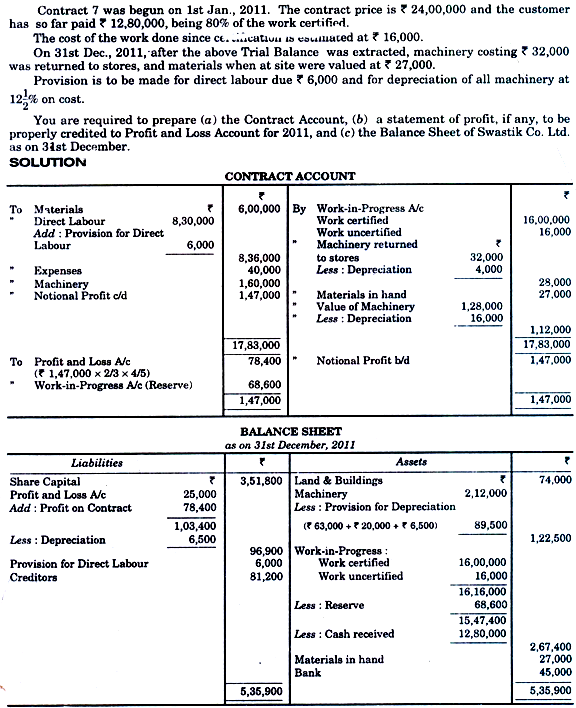What does KYC mean? Know the details
Contents
If you identify that a customer is listed as a PEP, your company can then undertake additional or enhanced due diligence, backed by documented audit trails to ensure ongoing KYC compliance. By conducting thorough KYC checks, you can dramatically reduce the financial, reputational, regulatory and strategic risks to your company from customers and other entities. Where an entity’s risk rating is considered above a threshold set by the financial institution, a greater level of scrutiny is needed.
- In 2013 and 2014, $4.3 billion in fines were levied against financial institutions, which quadrupled the fines of the nine previous years combined.
- However, these benefits also present challenges in preventing money laundering.
- Biometric face verification, because it is the most secure, convenient, and inclusive method of supporting KYC compliance remotely.
- In an ever-changing regulatory landscape, with no standardized model, the processes and rules for collecting, maintaining, and updating client data differ vastly across banking organizations.
- Even the most reluctant crypto firms have been compelled to introduce steadily more stringent KYC measures, as they face growing pressure and penalization from regulators.
Ensuring effective KYC procedures are in place at account opening helps deter money launderers and other financial criminals from becoming active on your services. The customer information obtained at onboarding also improves the monitoring process, as it provides insight into the account and the expected use of funds. It’s one issue to ensure KYC compliance, it’s an all-together far greater issue to deliver compliance in a manner that is cost-effective, scalable and what is miracle tele doesn’t unduly burden the customer. AThomson Reuterssurvey reveals escalating costs and complexities bogging financial institutions down. 89% of corporate customers have not had a good KYC experience – so much so that 13% have actually switched to another FI as a result. Similar to sanctions lists and watchlists, your KYC processes also need to include searches of available lists and databases to verify customers aren’t designated as politically exposed persons .
Any possible illegal activities are best determined at the beginning phase of a company, to avoid damage to the company’s reputation. In July 2021, the European Commission presented an ambitious package of legislative proposals to strengthen the EU’s anti-money laundering and countering the financing of terrorism (AML/CFT) rules. The package harmonizes AML/CFT rules across the EU and also proposes the creation of a new EU authority to fight money laundering. KYC and KYB guidelines fit into the larger scope of anti-money laundering /combating the financing of terrorism (AML/CFT) policies that are implemented around the world, under the supervision of national and sometimes supranational authorities. The Hudson United Bank of New Jersey was one of the banks used by the airplane hijackers who perpetrated the deadliest attack ever on American soil on Sept. 11, 2001.
Oftentimes, enhanced due diligence can detect things that standard customer due diligence cannot. Because business customers can vary in terms of their types of transactions, customers, locations, scale and business lines, CDD efforts will also differ, ranging from simplified to standard to enhanced CDD. In general, CDD will include verifying the identity of customers and understanding the monetary thresholds for required reporting and record retention, as well as the specific FinCEN rules governing different types of transactions.
For example, KYC and AML compliance has been compulsory for US banks since 2001, when the US Patriot Act was enacted. KYC is a financial regulatory requirement which is mandated by different regulations depending on the region. In the US, for example, it’s generally known as Customer Identification Program and is mandated by the USA Patriot Act. See how our products can help you build trust online to protect your business and customers. Tools and technology are used for data handling and whether it is safe enough to prevent document loss and loss of client confidentiality.
Reassuring and protecting online marketplace customers
In doing so, we strive for an increasing social awareness of organizations with regard to compliance. In most jurisdictions, AML regulations require firms to develop and implement an AML program that is tailored to their business needs, and capable of managing the specific risks that their customers or business sectors present. Protecting against financial crime by verifying that customers are who they say they are. Poor data quality and the inability to see the full breadth of customer relationships make it even more challenging.
Now that you know what KYC means, we want to offer you a solution for verifying the identity of your clients, which meets your needs. For this reason, we want to invite you to join our identity verification and validation platform for your users in your applications. This last point refers to facial photography, fingerprinting or other similar options. Identification startup Burrata, which has also recently raised seed funding, issues “digital identity tokens” to attach to cryptocurrency wallets. This approach can help other crypto firms to avoid storing users’ data themselves, keeping to their decentralized ethic. KYC may also be important in improving crypto’s public image throughout the economy.
Risk assessments also allow financial institutions to compare a client’s financial activity to that of their peers. When clients diverge from expected financial behavior, banks may use the profiles of clients that share similar occupations, financial backgrounds, and industry connections to determine the likelihood of criminal activity. KYC is a requirement by which regulated entities must obtain personal information about a customer to ensure that their services are not misused and ensure that people applying for financial services are not on sanctions or PEP lists. These KYC procedures take place at account opening and periodically thereafter, or when a customer changes their details.

Globally there has been an exponential increase in money laundering and terrorist financing activities, and COVID-19 has only abetted this surge. For this reason, during 2020, companies had to increase their costs to avoid fraud and economic crimes. It allows companies to capture more details, such as IP addresses and geolocation, in addition to valuable information.
Examples of trigger events include negative news about the individual or entity, a legal status or domicile change, and so on. These trigger events initiate the customer due diligence process if the events breach specified thresholds . This approach enables financial institutions to be more proactive in identifying and acting on risk events early compared to periodic reviews, thus averting any negative impact on financial institutions and their reputations.
KYC Verification Agencies
Anti-money laundering refers to laws and regulations intended to stop criminals from disguising illegally obtained funds as legitimate income. Financial institutions must also maintain current and accurate customer information and continue to monitor accounts for suspicious and illegal activities. EDD is used for customers that are at a higher risk of infiltration, terrorism financing, or money laundering and additional information collection is often necessary.
The dataset will be massive, and only a subset of user data must be extracted, ignoring superfluous, surplus, and duplicate data. Accessibility Standards means accessibility standards and specifications for Texas agency and institution of higher education websites and EIR set forth in 1 TAC Chapter 206 and/or Chapter 213. Compliance schedule means a schedule of events, by date, which will result in compliance with these regulations. Only resident individuals, sole proprietorships and minors , who are KYC Compliant and have a Bank Account can make Cash Investments. Simply put, crypto custody means securing the private key that proves you own of the funds held within your crypto wallet.

Provisioned in the Patriot Act, the CIP is designed to limit money laundering, terrorism funding, corruption and other illegal activities. Other jurisdictions have similar provisions; over 190 jurisdictions around the world have committed to recommendations from the Financial Action Task Force , a pan-government organization designed to fight money laundering. KYC regulations have far-reaching implications for consumers and financial institutions alike.
KYC compliance can help improve blockchain and crypto systems by decreasing risk, improving fraud prevention and increasing AML compliance. Financial institutions often monitor the cryptocurrency blockchain to detect fraudulent activity, money laundering or other criminal activity. Companies are striving to grow their customer base through faster, easier and lower-cost digital channels, yet the current regulatory landscape creates many barriers to achieving those ideals. Customers want the convenience of signing up through digital channels, and they want the process to be quick and painless. By performing ongoing monitoring, businesses can implement a continuous risk assessment process that flags customers who may pose increased risks as circumstances change.
How Precisely helps you know your customer
The penalty assessed against Bitcoin mixer Larry Dean Harmon for violating anti-money laundering laws. Plaid Auth provides instant bank account authentication when users connect with their bank account credentials. Understanding KYC means understanding not just what the process is, but how the different components work together to reduce fraud and illegal activity. She believes in the potential of new financial services to enable greater financial access. The lower uncertainty encourages the institutions to lend to their clients, generating higher profits. KYCmeans Know your Customer guidelines adopted by the Bank for the purpose of identification and verification of the Customer, pursuant to the guidelines, circular and notifications, issued by the Reserve Bank of India, from time to time.
The personal information gathered differs globally based on regulations, the organization’s risk appetite, and the product. A robust KYC regime can significantly reduce risk to an organization and protect legitimate customers by verifying customer identities. As part of the due diligence process, KYC helps financial institutions protect themselves from unknowingly doing business with sanctioned individuals, organized crime, and scammers. In South Africa, the Financial Intelligence Centre Act covers AML and KYC factors. If left vulnerable, banks could be a substantial conduit for money laundering, as they provide a variety of financial services and deal with significant amounts of accounts, money and transactions. If you’re a financial institution , you could face possible fines, sanctions and reputational damage if you help enable money laundering or terrorist financing.
Know Your Customer guidelines in financial services require that professionals make an effort to verify the identity, suitability, and risks involved with maintaining a business relationship. The procedures fit within the broader scope of a bank’s anti-money laundering policy. KYC processes are also employed by companies of all sizes for the purpose of ensuring their proposed customers, agents, consultants, or distributors https://cryptolisting.org/ are anti-bribery compliant, and are actually who they claim to be. Banks, insurers, export creditors, and other financial institutions are increasingly demanding that customers provide detailed due diligence information. Initially, these regulations were imposed only on the financial institutions but now the non-financial industry, fintech, virtual assets dealers, and even non-profit organizations are liable to oblige.
What about Customer Due Diligence?
Anti-money laundering regulations are mandated by both national and international authorities around the world and place a wide variety of screening and monitoring obligations on financial institutions. Those AML obligations include the Know Your Customer process, which enables firms to identify their customers and understand their financial behavior. Given the proximity of the terms KYC and AML, however, and the fact that they are often used interchangeably, it can be difficult to understand how they differ in a regulatory context. The results of a risk assessment should help a financial institution determine a customer’s risk profile, and make predictions about their future financial behavior.
Who Regulates KYC Compliance?
Two rules governing KYC include Financial Industry Regulatory Authority Rule and FINRA Rule 2111 . Eric is a duly licensed Independent Insurance Broker licensed in Life, Health, Property, and Casualty insurance. He has worked more than 13 years in both public and private accounting jobs and more than four years licensed as an insurance producer.
Innovations in KYC
At this point in the process you’ll also be asked to provide your VAT identification number, however it isn’t necessary. The reason we ask is that some companies create their business account before they have registered in Germany for tax. Potential documents include articles of association, list of shareholders, commercial register extract, and annual financial statements. Therefore, while often viewed as synonymous, KYC and AML cover different aspects of a financial institution’s efforts to comply with laws and regulations governing money laundering and counter-terrorist financing .


